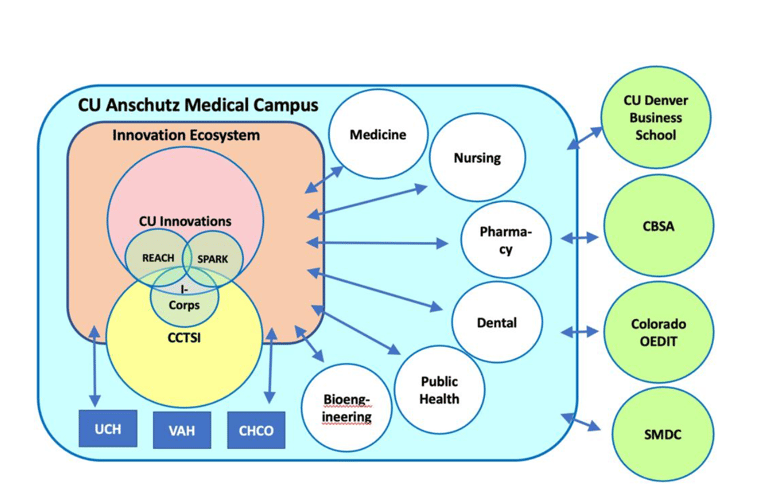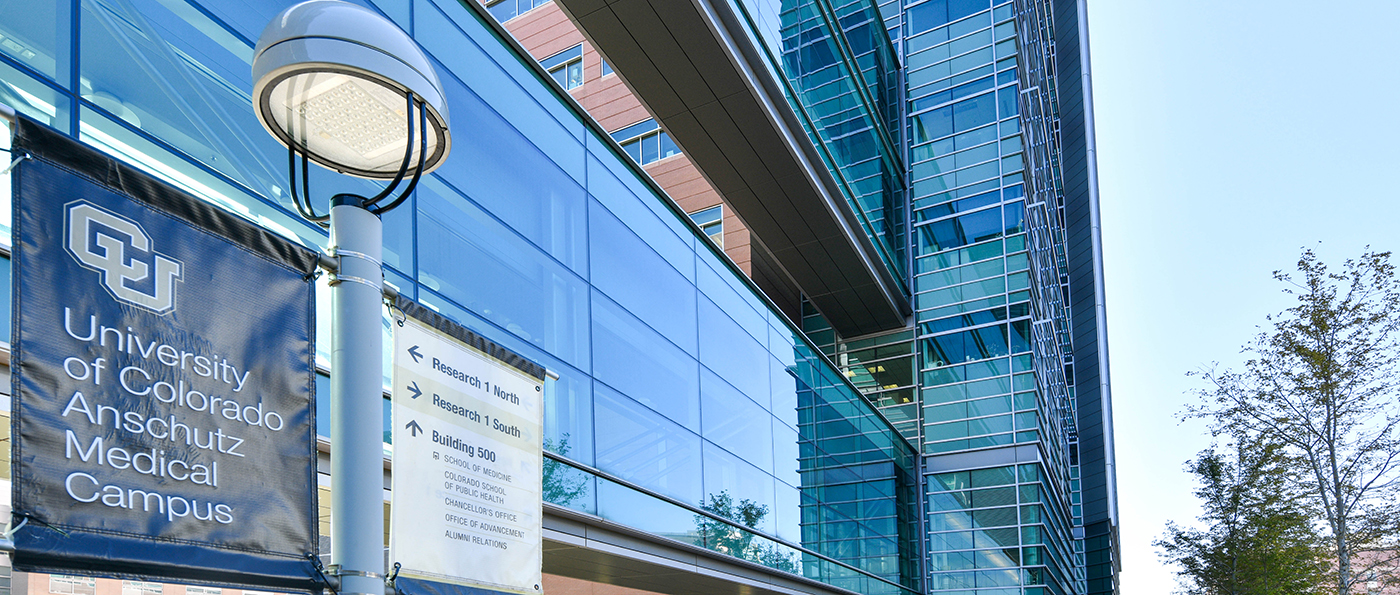A new study highlights the University of Colorado Anschutz Medical Campus as an example of how an academic medical center can turn groundbreaking research into commercial products that improve patient care and public health.
The paper, published recently in the Journal of Clinical and Translational Science, focuses on the unique ecosystem at CU Anschutz responsible for these innovations. And it specifically details the campus’s collaborative culture and how biomedical research is commercialized.
The campus has successfully turned academic research into a variety of products. CU Anschutz, for example, developed two vaccines for shingles, Zostavax and Shingrix, and worked with industry partners to distribute them globally.
“At the CU Anschutz Medical Campus, we have created an ecosystem that fosters innovation and enables our faculty to turn big ideas into bold breakthroughs with transformative impacts on health and medicine,” said Chancellor Donald M. Elliman, Jr. “Our investments in infrastructure and top talent in diverse fields, paired with a focus on building robust industry partnerships, are what allow us to translate research discoveries into new drugs and devices, novel approaches to care delivery and improved outcomes for patients everywhere.”
The study notes two major engines driving this innovation: the Colorado Clinical and Translational Sciences Institute (CCTSI) and CU Innovations.
Translating medical discoveries into commercial products
“By sharing best practices for translational research, our hope is to showcase how academic medical centers can develop and disseminate creative solutions to the many challenges facing healthcare systems,” said author Ronald Sokol, MD, assistant vice chancellor for Clinical and Translational Science at the CU Anschutz Medical Campus and director of the CCTSI.
CCTSI sets out a road map for faculty that helps them translate research innovation and discoveries into commercially viable products or services. The CU Innovations program collaborates with academic and administrative offices on the campus to identify unique barriers to translation and find creative ways to partner with industry to commercialize discoveries.
“The close collaboration between CU Innovations and the CCTSI with a shared mission of supporting the translation of discoveries has led to major successes,” said Kimberly Muller, executive director of CU Innovations. “At CU Innovation’s core lies the traditional patent licensing and patent management. However, in recent years greater emphasis has been placed on industry collaborations, providing gap funding, making technology development experts accessible to faculty and offering training programs.”
Collaborating with partners on medical breakthroughs
Recently, Summit Biolabs, a commercial-stage molecular diagnostics company, partnered with CU Innovations to collaborate on developing saliva liquid-biopsy tests for early detection of head and neck cancer and diagnosis of viral contagions such as COVID-19. The collaboration involves partnering with CU Anschutz faculty and experts on research, development and commercialization of the tests.
“This collaboration broadens and strengthens Summit Biolabs’ ability to bring to market life-changing saliva liquid-biopsy tests that ultimately enable better treatment and improved outcomes for patients,” said Bob Blomquist, Chief Executive Officer at Summit Biolabs.

.png)
.jpg)
